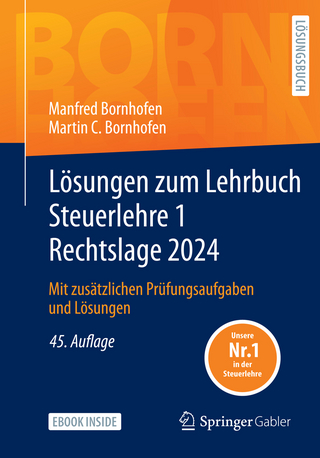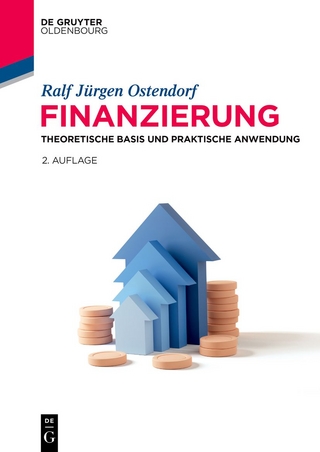
Paper Tigers, Hidden Dragons
Firms and the Political Economy of China's Technological Development
Seiten
2016
Oxford University Press (Verlag)
978-0-19-877720-5 (ISBN)
Oxford University Press (Verlag)
978-0-19-877720-5 (ISBN)
This book provides an in-depth study of China's information technology (IT) industry and policy over the last 15 years. It draws a connection between China's financial system and technological development outcomes.
China presents us with a conundrum. How has a developing country with a spectacularly inefficient financial system, coupled with asset-destroying state-owned firms, managed to create a number of vibrant high-tech firms?
China's domestic financial system fails most private firms by neglecting to give them sufficient support to pursue technological upgrading, even while smothering state-favoured firms by providing them with too much support. Due to their foreign financing, multinational corporations suffer from neither insufficient funds nor soft budget constraints, but they are insufficiently committed to China's development. Hybrid firms that combine ethnic Chinese management and foreign financing are the hidden dragons driving China's technological development. They avoid the maladies of China's domestic financial system while remaining committed to enhancing China's domestic technological capabilities.
In sad contrast, China's domestic firms are technological paper tigers. State efforts to build local innovation clusters and create national champions have not managed to transform these firms into drivers of technological development.
These findings upend fundamental debates about China's political economy. Rather than a choice between state capitalism and building domestic market institutions, China has fostered state capitalism even while tolerating the importing of foreign market institutions. While the book's findings suggest that China's state and domestic market institutions are ineffective, the hybrids promise an alternative way to avoid the middle-income trap. By documenting how variation in China's institutional terrain impacts technological development, the book also provides much needed nuance to widespread yet mutually irreconcilable claims that China is either an emerging innovation power or a technological backwater.
Looking beyond China, hybrid-led development has implications for new alternative economic development models and new ways to conceptualize contemporary capitalism that go beyond current domestic institution-centric approaches.
China presents us with a conundrum. How has a developing country with a spectacularly inefficient financial system, coupled with asset-destroying state-owned firms, managed to create a number of vibrant high-tech firms?
China's domestic financial system fails most private firms by neglecting to give them sufficient support to pursue technological upgrading, even while smothering state-favoured firms by providing them with too much support. Due to their foreign financing, multinational corporations suffer from neither insufficient funds nor soft budget constraints, but they are insufficiently committed to China's development. Hybrid firms that combine ethnic Chinese management and foreign financing are the hidden dragons driving China's technological development. They avoid the maladies of China's domestic financial system while remaining committed to enhancing China's domestic technological capabilities.
In sad contrast, China's domestic firms are technological paper tigers. State efforts to build local innovation clusters and create national champions have not managed to transform these firms into drivers of technological development.
These findings upend fundamental debates about China's political economy. Rather than a choice between state capitalism and building domestic market institutions, China has fostered state capitalism even while tolerating the importing of foreign market institutions. While the book's findings suggest that China's state and domestic market institutions are ineffective, the hybrids promise an alternative way to avoid the middle-income trap. By documenting how variation in China's institutional terrain impacts technological development, the book also provides much needed nuance to widespread yet mutually irreconcilable claims that China is either an emerging innovation power or a technological backwater.
Looking beyond China, hybrid-led development has implications for new alternative economic development models and new ways to conceptualize contemporary capitalism that go beyond current domestic institution-centric approaches.
Douglas B. Fuller is a Professor in the Department of Business Administration of Zhejiang University's School of Management. He previously taught at King's College London, Chinese University of Hong Kong, and American University in Washington, DC. His research spans the political economy of development, technology policy and strategy, and comparative capitalism with a geographic focus on East Asia.
PART 1: SETTING THE STAGE; PART 2: STATE POLICY, FIRMS AND UPGRADING OUTCOMES; PART 3: THE INTEGRATED CIRCUIT INDUSTRY; PART 4: CHINA IN COMPARATIVE PERSPECTIVE
| Erscheinungsdatum | 24.05.2016 |
|---|---|
| Verlagsort | Oxford |
| Sprache | englisch |
| Maße | 168 x 234 mm |
| Gewicht | 580 g |
| Themenwelt | Wirtschaft ► Betriebswirtschaft / Management ► Finanzierung |
| Wirtschaft ► Betriebswirtschaft / Management ► Unternehmensführung / Management | |
| Wirtschaft ► Betriebswirtschaft / Management ► Wirtschaftsinformatik | |
| ISBN-10 | 0-19-877720-5 / 0198777205 |
| ISBN-13 | 978-0-19-877720-5 / 9780198777205 |
| Zustand | Neuware |
| Informationen gemäß Produktsicherheitsverordnung (GPSR) | |
| Haben Sie eine Frage zum Produkt? |
Mehr entdecken
aus dem Bereich
aus dem Bereich
Buch | Softcover (2024)
Springer Gabler (Verlag)
25,00 €
Allgemeines Steuerrecht, Abgabenordnung, Umsatzsteuer
Buch | Softcover (2024)
Springer Gabler (Verlag)
28,00 €
theoretische Basis und praktische Anwendung
Buch | Softcover (2023)
De Gruyter Oldenbourg (Verlag)
39,95 €


